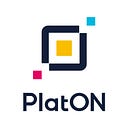Several Major Features of PlatON Test Net Upgrade
PlatON, the next generation computing architecture for the future, has completed the test net V0.5.0 version upgrade today. Now users can elect consensus nodes by locking Energon in exchange for votes. Privacy contract gets Windows version, and automatic node discovery function is added.
Consensus Node Election
As one of the core mechanisms of the PlatON Giskard consensus, the consensus node election fully reflects the decentralization feature, that is, the consensus nodes is elected by the user. Users can exchange the Energon in the wallet client in exchange for the votes, and at the same time specify which node the votes are cast to. The number of votes obtained by the participating nodes is an important reference for whether or not they can be elected as a consensus node. After being elected, it will take turns with other elected nodes to take charge of block producing of this round. The participating nodes can set the dividend ratio, and share the income with the users who support themselves according to the ratio after obtaining the Energon of the block producing reward.
Everyone who owns Energon is a co-constructor of PlatON, so they all have the right to participate in determining the the consensus nodes of PlatON. It is also an effective investment means to exchange the Energon held by the vote to elect the consensus node. As much as possible to ensure that the nodes of their elections can be elected, so that there is an opportunity to obtain a share of the rewards Energon to achieve value-added. But at the same time, the highly popular nodes are not likely to be able to provide higher dividends than the moderately popular nodes that are still elected. After all, the higher the popularity, the more votes they have, the lower the chance that a single vote will be selected to participate in the dividend. So how to vote for the right node is a problem that needs to be carefully considered.
Privacy Contract for Windows
PlatON’s exclusive privacy contract provides support for the Windows version in this upgrade. This will undoubtedly allow more users to join the development and deployment of privacy contracts on their more familiar operating systems.
In the PlatON test net, secure multi-party computing (MPC) algorithms are implemented through privacy contracts to preserve data privacy. That is, although the data is not being collected and not disclosed, it can also participate in the computation to realize the value of the data. Healthcare, AI, credit, marketing and other industries that have strong demand for private data applications, can start research on privacy-preserving computing immediately. All other distributed computing networks can use PlatON with privacy-preserving computing capabilities to solve security and privacy issues.
Automatic Node Discovery
A centralized P2P network relies on a server to collect and store node information participating in the network. The newly joined node will first connect to this server to get a list of nodes, and then connect to these nodes for data interaction. The distributed computing network is a decentralized system. There is no centralized server to record node information. Therefore, the node automatic discovery function must be relied on to solve the problem of node information acquisition.
The implementation of the node auto-discovery feature means that more nodes will be able to join the PlatON network in a more convenient way, making the entire network more and more prosperous.
